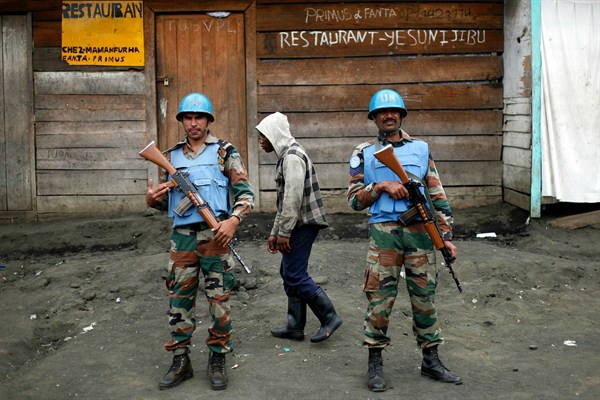Armed groups proliferate like rabbits in the Democratic Republic of the Congo. From the state’s collapse in the early 1990s through two wars at the turn of the 21st century to today, the lack of government control over the country’s territory makes it easy for a few dozen -- or a few thousand -- men to take up arms, tax local populations, exploit natural resources and engage in massive human rights abuses against civilian populations.
The DRC’s numerous armed groups are formed for a diverse array of reasons, ranging from legitimate concerns over land rights in the country’s eastern Kivu provinces to xenophobic discrimination against particular ethnic groups to a desire to control key trade routes or natural resource revenues. Taking names that almost invariably include the words “justice,” “freedom” or “liberation,” many groups fizzle within a few months or years, while others build enough strength and a strong enough financial base to sustain decades of sporadic, low-intensity fighting with DRC government forces and one another. Most are rarely mentioned or known outside of the region or even in Kinshasa, the country’s capital city, 950 miles away.
In 2012, however, one new Congolese armed group managed to break through the veil of obscurity to grab international headlines. From its formation in April to its dramatic capture of Goma in November, the M23 movement has become one of the strongest eastern Congolese armed groups to arise in many years.

